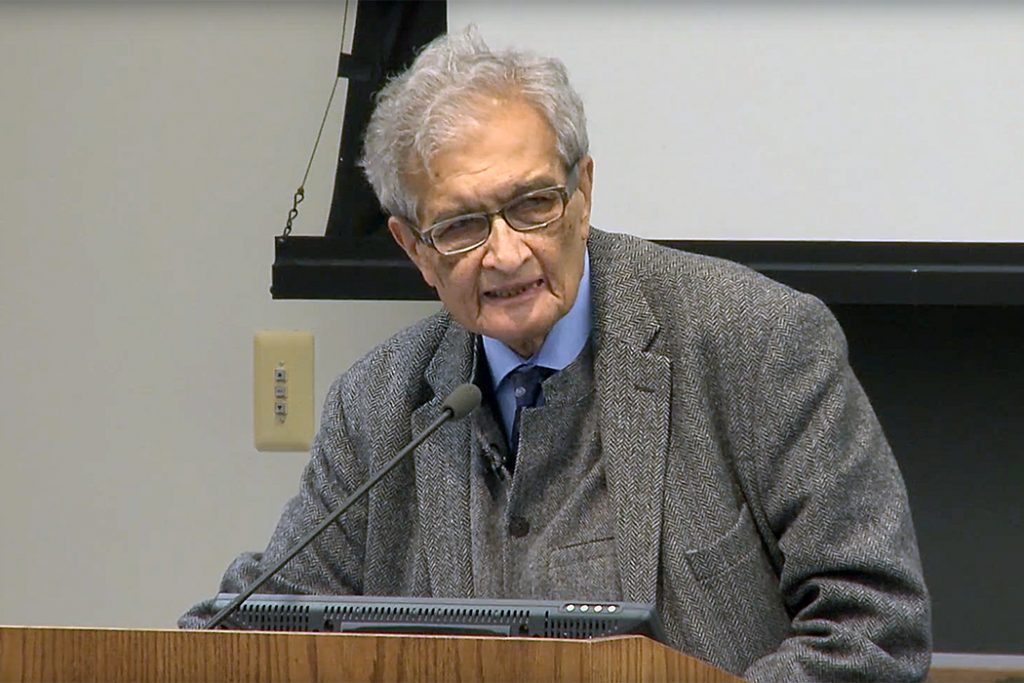Leaders in the fields of economics, philosophy, and law gathered at Boston College Law School April 19 and 20 for the conference, “The Future of Economic and Social Rights.” Sponsored by the Clough Center for the Study of Constitutional Democracy at Boston College and organized by BC Law professor Katharine Young, the two-day event featured several panel discussions about the intersection of economics, politics, and human rights, along with a keynote address by Nobel Prize-winner Amartya Sen.
“These questions do not have easy answers,” Vincent Rougeau, the dean of Boston College Law School, said in his opening remarks. “But they are among the most pressing in our time. In rich and poor countries alike, growing social inequality accompanies striking deprivation at the bottom, as well as great wealth at the top.”
Following opening remarks from Rougeau and Clough Center Director and BC Law Professor Vlad Perju, the first day of discussions ranged from government institutional structures to social and economic rights. The three panels, “Rights & Democracy,” “Adjudication & Rights,” and “Rights, Order, and Ordering,” included a variety of viewpoints from both domestic and international experts and scholars.
The second day opened with the highly anticipated panel, “Measuring ‘Progressive Realization,’” featuring remarks by four members of the UN Committee on Economic, Social, and Cultural Rights (UNCESCR) from Belgium, Egypt, Colombia, and Korea. They provided a variety of perspectives on public budgets and funding and how they might be used to better measure social and economic equity.
A highlight of the conference was the keynote by Sen, the Thomas W. Lamont University Professor at Harvard University and winner of the Nobel Prize in Economics in 1998.
“No one can be long in the field of economic and social rights, or human rights in general, or development economics, or Indian history, or constitutional democracy, or law and justice, without reading what Amartya Sen has written on the subject,” Young said, in her introduction of Sen.
Sen, considered one of the most significant contributors to welfare economics and the author of important books such as The Idea of Justice and Development as Freedom, spoke on the philosophical, moral, and ethical relationships among government, law, and society. Sen referred to a variety of authors ranging from Adam Smith to Kant and Jeremy Bentham in order to explain and explore the place of reason, duty, and social science in society’s understanding of social and economic justice. He called his talk “Rights in a Global World.”
“The recognition of human rights is not an insistence that everyone everywhere rises to help prevent every violation of every human right no matter where it occurs,” Sen said, when discussing the duties of people and institutions in the recognition of human rights. “It is rather an acknowledgement that if one is in a plausible position to do something effective in preventing the violation of such a right, then one does have an obligation to consider doing just that.”
Sen ended by talking about optimal choice and reasoning in the future decision-making of human rights-related policy options, discouraging the pursuit of optimal choice in the realm of human rights.
“In dealing with human rights we need not do anything like that,” He said. “Human rights demands more sophisticated reasoning.”


